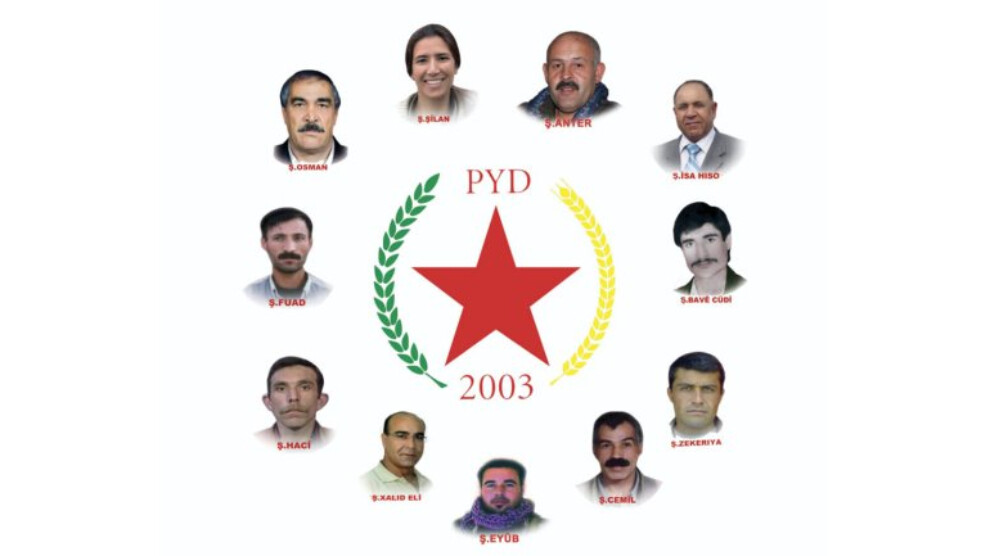PYD celebrates 21st anniversary since its establishment
The PYD was founded 21 years ago.
The PYD was founded 21 years ago.

The Democratic Union Party (PYD) was founded on 20 September 2003, and has became one of the mainstays of the revolution in Rojava. The party described itself as believing in "social equality, justice and the freedom of belief" as well as "pluralism and the freedom of political parties". It describes itself as "striving for a democratic solution that includes the recognition of cultural, national and political rights, and develops and enhances their peaceful struggle to be able to govern themselves in a multicultural, democratic society." The PYD is a consultative member of the Socialist International.
PYD members suffered years of violent repression at the hands of the Syrian government. Though Syrian security forces had already for several years been targeting members of Kurdish political parties and organizations, the PYD came under intensified persecution in the aftermath of the 2004 Qamishli riots. The Syrian government saw the party as a particular threat due to its "ability to mobilise large crowds", and suspected it of organising numerous demonstrations. Therefore, many PYD activists imprisoned in the aftermath of the uprising were not given the amnesty given by Bashar al-Assad.
The Party states its goals as follows:
A. Struggle for the democratisation of Syria based on the principle of the brotherhood of peoples, because Syria has a long history of being a cultural mosaic and an interconnected social fabric. This history will be the ground on which the shared life of all the ethnic and religious components of Syria is built. This will only be achieved through the shared struggle of all ethnicities, such as the Kurds, Arabs, Assyrian, Syriacs, Turkmen and Chechens, etc., to undermine the chauvinist nationalist mentality, which has scattered Syrian society. Thus, the PYD works towards finding a democratic and just solution to the Kurdish issue in Syria and Rojava within a democratic Syrian constitutional framework.
B. Develop the Democratic Self-administration system, which currently exists in Rojava, and is considered the most successful solution to all socio-political issues. Furthermore, it should be disseminated to all parts of Syria to achieve a democratic, pluralist and decentralised Syria.
C. Strengthening the brotherhood amongst peoples and ethnic groups within the framework of free and voluntary union based upon a shared homeland and the democratic nation.
D. Support the democratic liberation struggle in all parts of Kurdistan in order to achieve and consolidate Kurdish national unity based upon the principle of democratic communal confederalism without compromising political borders
E. Work towards a democratic confederate Middle Eastern union and to move forward towards building a political, moral and ecological community that takes women’s freedom as its foundation.
F. Achieve gender equality and to consolidate social justice.